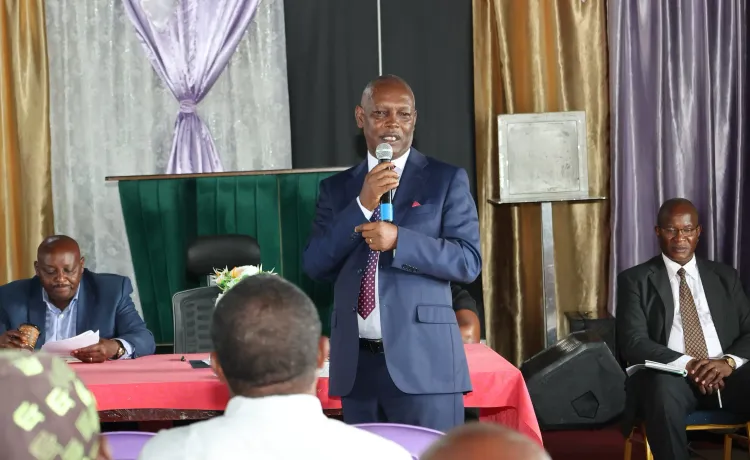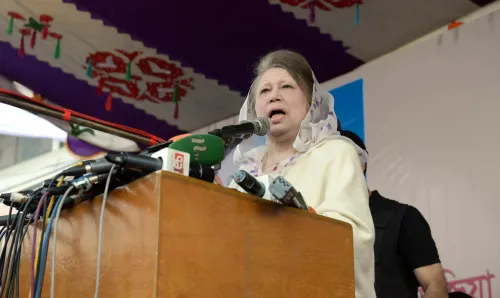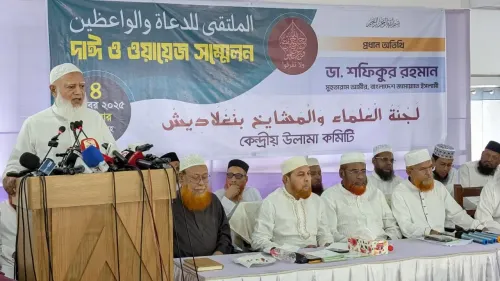African Leaders Advocate for Resilient Livestock Systems to Combat Hunger Crisis

Nairobi, Nov 30 (NationPress) The creation of resilient small-holder livestock systems that can endure climatic shocks, pests, diseases, and habitat loss is vital for tackling the issues of poverty, hunger, and malnutrition in Africa, stated agricultural officials.
During the 50th anniversary celebration of the International Livestock Research Institute (ILRI) in Nairobi, the capital of Kenya, ministers reasserted their commitment to climate-resilient animal husbandry to support the continent's food security and enhance rural livelihoods, as reported by Xinhua news agency.
Andrew Karanja, the cabinet secretary for Kenya's Ministry of Agriculture and Livestock Development, highlighted that empowering African pastoralists and small-scale farmers through index-based insurance, research into drought-resistant breeds, and improved market connections is essential for maximizing the economic and nutritional advantages of the livestock sector.
"We must enhance the resilience of our livestock systems via innovative research and advancements to increase their productivity and fulfill the food and nutritional requirements of local communities," Karanja stated.
The event brought together participants from the Global South, including scientists, researchers, and policymakers, to review decades of pioneering research aimed at transforming smallholder livestock systems.
Fikru Regassa, state minister for the Ministry of Agriculture in Ethiopia, underscored the significance of developing climate-smart solutions to assist African livestock keepers in coping with recurring droughts, invasive pests, and disease outbreaks. He also advocated for policy harmonization and collaborative research to identify and promote livestock breeds that can adapt to harsh climates.
The livestock sector contributes approximately 30 percent to the gross domestic product of numerous African nations and plays a crucial role in ensuring food security and generating incomes in rural areas, stated ILRI Director-General Appolinaire Djikeng.
Djikeng emphasized the urgent need to reorganize the continent's livestock systems to ensure they fulfill the evolving requirements of local communities, including nutritional diversity and sustainable revenue generation.
To improve the resilience and productivity of Africa's livestock sector, Djikeng called for investments in the research and development of heat-tolerant breeds, novel vaccines, and therapeutics to address infectious diseases aggravated by climate change.









